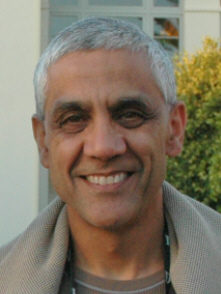D: Vinod Khosla thinks outside the barrel


Today, E85, a blend of 85% ethanol and 15% unleaded gasoline, is supported by many auto manufacturers and is available at hundreds (not thousands) of pumps in the U.S. Ethanol is 200-proof grain alcohol--good old corn liquor. Read the FAQ.
Kholsa, as a well known, seasoned investor (Kleiner Perkins Caulfield and Byer), has done the due diligence and has all the facts and figures to justify his willingness to help fund the alternative fuel industry. There are plenty of acres to grow corn and collect biomass, called cellulosic (made from woodchips, orange juice pulp, grasses, corn stalks—any plant waste that will produce carbohydrates and sugar) to distill ethanol economically. Estimates vary, he said, as to how many acres of farmland would be needed. His estimate is that about 40 million acres are needed to replace all the gasoline used in the U.S., and that farmers would benefit economically as well. “Forty million acres is as much land as we pay farmers not to grow food on today,” Khosla said.
In fact, many in the energy food chain would benefit. Ethanol is less expensive to develop than hydrogen, which is nice for automakers. The farming industry has a new cash crop and less pressure on subsidies. It's lower risk and a more rapid path to efficient and green energy. Oil companies could become distillers and avoid the high risk oil patches. For the full dose on the ethanol movement, check out this PDF from acore.org.
Kholsa recommends that the government mandate going from 20 percent to 70 percent of cars using flex fuel, capable of running on gas or ethanol, by 2014. Secondly, ten percent of gas stations offer an ethanol fueling station, and third, put a floor on the price of oil at $40 per barrel, so oil companies cannot manipulate pricing.It all sounds very rosy, but there is a major hitch. The oil companies are not at the forefront of the
Oil companies in the U.S. will tolerate ethanol, accept the regulations, but do the minimum. On the other hand, if the price of oil continues to stay high and public sentiment turns against foreign imports, and if Khosla’s and Al Gore’s environmental predictions are in the ballpark, your next car may be ethanol ready. The automakers just want to sell cars. As evidence, Ford and GM are selling a lot of flex engine-based vehicles in Brazil, which has undertaken a major ethanol initiative. Bloomberg has a good overview on the finance and politics of ethanol.